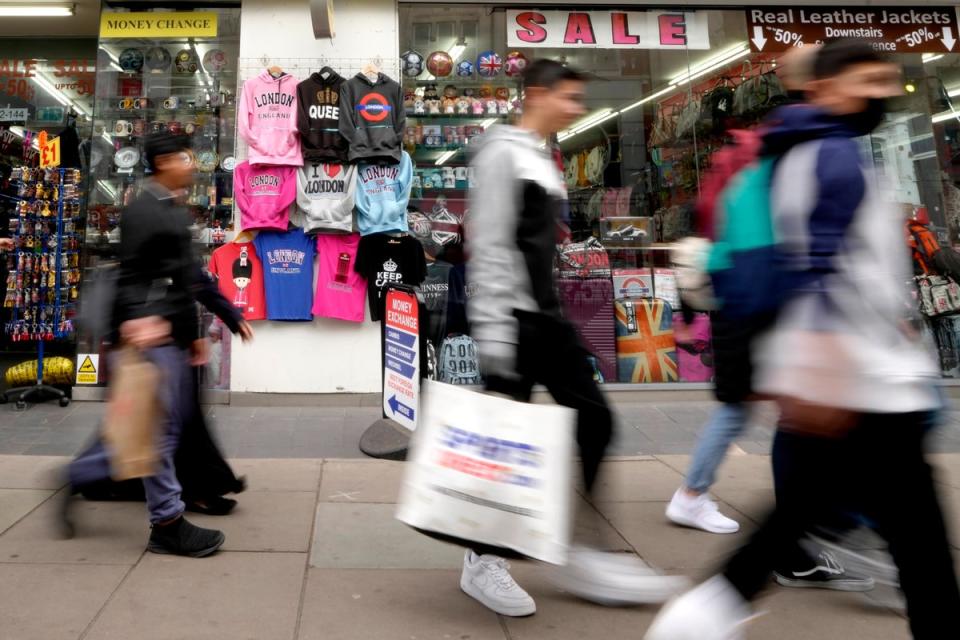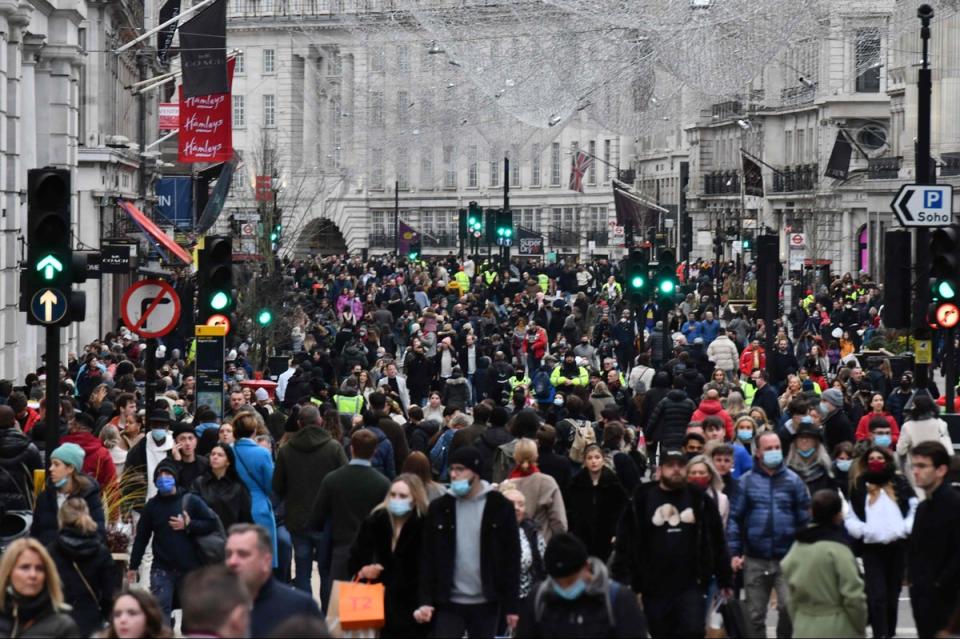Retailers on leading London shopping streets set to see £96m slashed from business rates bill

Retailers on some of central London’s most popular shopping streets could see £96 million slashed from their collective business rates bill this year, as a long-awaited change to a property tax comes into effect.
Firms with shops on Oxford Street, Regent Street, Bond Street, Kensington High Street, King’s Road, Knightsbridge and in Covent Garden will pay an estimated £222 million in business rates in the financial year to April 2024. That is down 30% from the prior 12 months, new research from property agent Knight Frank shows.
The reduction is as a result of the 2023 business rates revaluation, which comes into effect from April 1. It is based on rateable values from April 2021.
The study found retailers on Oxford Street will be the biggest beneficiaries, with their rates liability set to fall to £91 million from £151 million.
The saving will be welcomed after the street saw footfall slump during the pandemic. It has also lost a number of high-profile tenants that once attracted mass numbers of shoppers, such as TopShop and Debenhams.
Rob Hargreaves, Knight Frank partner, central London retail, said the rates revaluation “could be the catalyst” some firms need to open debut stores or for existing brands to expand their footprint.
Business rates are charged on most non-domestic properties The tax is linked to the underlying value of a property, but they are currently based on values from April 2015. Retailers have long argued that does not reflect how real estate values in the industry have been hammered due to the pandemic and competition from online firms.
The government has committed to moving to three-yearly revaluations from 2023.
Properties in London are going to see an estimated 4% reduction in their business rates bill on average following new valuations and a five year £13.6 billion government’s support package.
Next financial year the capital will see over £1.4 billion in rates support from a series of measures announced in the Autumn statement, such as extending and increasing relief for retail, hospitality and leisure.

Rachel Kelly, assistant policy director at the British Property Federation, said: “While retailers will be relieved to see their rates bills finally drop next year, Government cannot allow this situation to be repeated, with businesses paying a disproportionate level of tax based on outdated valuations that do not reflect today’s market or wider economy. We need to move to annual revaluations if want a system that is fair for all.”
A HM Treasury spokesman said: “We announced a generous £13.6 billion business rates support package at Autumn Statement which protects all businesses in England in full from rising inflation, cuts average bills in every region and addresses the tax imbalance between bricks and mortar and in-store sales.”

 Yahoo Finance
Yahoo Finance 